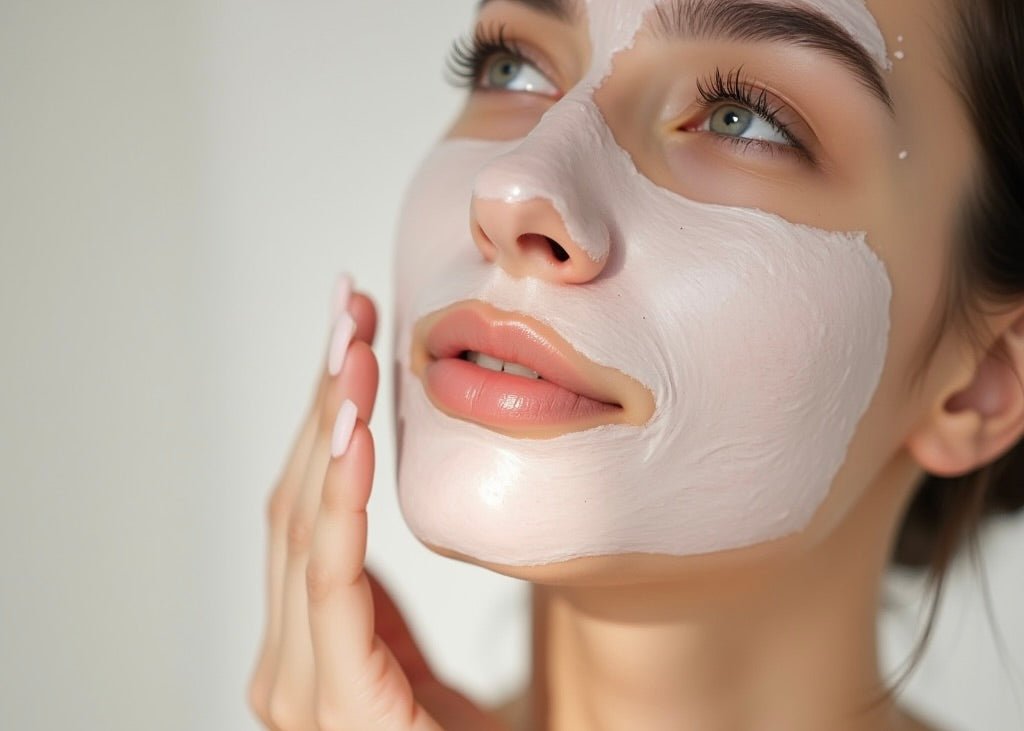
How to Shop for the Best Face Mask for Oily Skin
Navigating the world of skincare can be a daunting task, especially when you're dealing with oily skin. With a plethora of products on the market, it's essential to know what to look for to ensure you're getting the best face mask for your skin type. This guide will help you understand the key factors to consider when shopping for a face mask for oily skin, as well as the benefits of using natural and sustainable skincare ingredients.
Understanding Oily Skin
Oily skin is characterized by an excess production of sebum, a natural skin oil that helps protect the skin and keep it hydrated. While sebum is essential for skin health, too much of it can lead to a shiny appearance, clogged pores, and acne breakouts.
Several factors can contribute to oily skin, including genetics, hormonal changes, diet, and climate. It's important to understand that oily skin requires special care to balance oil production without stripping the skin of its natural oils.
The Role of Face Masks in Oily Skin Care
Face masks are an integral part of a skincare routine for oily skin. They provide a deep cleansing action, helping to unclog pores and reduce the appearance of acne. Additionally, face masks can help regulate oil production and provide the skin with essential nutrients.
However, not all face masks are created equal. It's crucial to choose a face mask specifically designed for oily skin, as the wrong product can exacerbate oiliness and lead to further skin problems.
Choosing the Right Face Mask for Oily Skin
When shopping for a face mask for oily skin, there are several key factors to consider. These include the ingredients, the type of mask, and the brand's commitment to sustainability.
Let's delve into these factors in more detail to help you make an informed decision.
Ingredients to Look for
The ingredients in a face mask can make or break its effectiveness for oily skin. Here are some ingredients to look for:
- Clay: Clay is a natural ingredient that's excellent for oily skin. It helps absorb excess oil and impurities from the skin, leaving it clean and refreshed.
- Salicylic Acid: This is a type of beta-hydroxy acid (BHA) that can penetrate deep into the pores to dissolve excess sebum and dead skin cells.
- Niacinamide: Also known as vitamin B3, niacinamide can help regulate oil production and reduce the appearance of enlarged pores.
- Tea Tree Oil: Known for its antibacterial properties, tea tree oil can help fight acne-causing bacteria and reduce inflammation.
Types of Face Masks
There are several types of face masks suitable for oily skin. These include:
- Clay Masks: These masks are made with clay, which absorbs excess oil and impurities from the skin.
- Peel-Off Masks: Peel-off masks can help remove dead skin cells and unclog pores. However, they should be used sparingly as they can be harsh on the skin.
- Sheet Masks: Sheet masks are soaked in a serum that can deliver potent ingredients to the skin. Look for sheet masks with ingredients like niacinamide or tea tree oil for oily skin.
Sustainability Matters
When shopping for a face mask, it's also important to consider the brand's commitment to sustainability. Look for brands that use natural and sustainable ingredients, have eco-friendly packaging, and are cruelty-free.
Using natural and sustainable skincare products not only benefits your skin but also the environment. Natural ingredients are often gentler on the skin and free from harmful chemicals. Meanwhile, sustainable practices help reduce the environmental impact of skincare production.
How to Use a Face Mask for Oily Skin
Now that you know what to look for in a face mask for oily skin, let's discuss how to use it effectively.
- Cleanse Your Skin: Before applying a face mask, it's important to cleanse your skin to remove any makeup, dirt, and oil. This allows the mask to penetrate deeper into your skin.
- Apply the Mask: Apply a thin layer of the mask to your face, avoiding the eye and lip area. Follow the instructions on the packaging for how long to leave the mask on.
- Rinse Off: Rinse off the mask with warm water. Then, pat your skin dry with a clean towel.
- Follow with Skincare Routine: After using a face mask, continue with your regular skincare routine. This may include applying a toner, serum, and moisturizer.
Remember, while face masks can provide a deep cleanse, they should not replace your daily skincare routine. Instead, consider using a face mask once or twice a week for best results.
Conclusion
Shopping for a face mask for oily skin doesn't have to be overwhelming. By understanding your skin and knowing what to look for, you can find a face mask that helps control oil, unclog pores, and keep your skin looking its best. Remember, the best face masks for oily skin contain ingredients like clay, salicylic acid, niacinamide, and tea tree oil. Additionally, choosing products from brands committed to sustainability can help you care for your skin and the planet at the same time.













